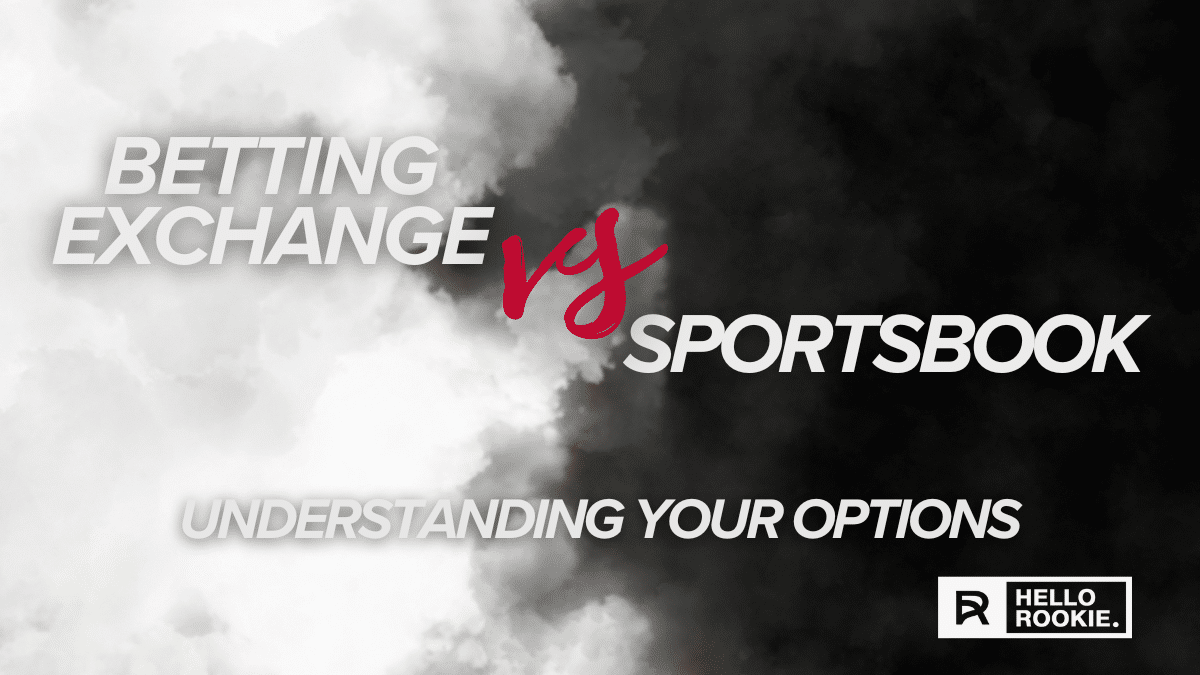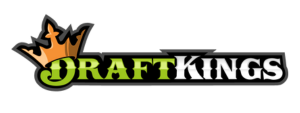Betting Exchange vs. Sportsbook: Understanding Your Options


Ever since the US Supreme Court overturned PASPA in 2018, the internet has lit up with a smorgasbord of options for the enthusiastic sports bettor. Betting exchanges and sportsbooks stand out as the two primary platforms among these options.
Both venues provide plenty of opportunities to bet on various sports and events, but they operate under fundamentally different models.
You may have heard of sportsbooks but most likely have not heard of betting exchanges. That’s okay; sportsbooks like DraftKings and BetMGM are by far the most popular way to place bets.
| Feature | Betting Exchange | Sportsbook |
|---|---|---|
| Betting Against | Other bettors | The house |
| Odds Setting | Market-driven | Set by the bookmaker |
| Commission/Fees | On winning bets | Included in odds (vig) |
| Pros | Better odds, flexibility, lower costs | User-friendly, wide market, fixed odds |
| Cons | Complexity, limited liquidity | Less competitive odds, account limitation |
What is a Betting Exchange?
A betting exchange is a platform that allows bettors to wager against each other rather than against the bookmaker. It’s a peer-to-peer system where individuals can place bets (back a selection to win) or offer odds to other users (lay a selection to lose).
Exchanges make money by charging a commission on winning bets, which is usually a percentage of the net winnings. This is a lot like DFS sites where you’re playing against other players and not the house.
Sporttrade and Prophet Exchange are examples of platforms that have adopted this model, providing a marketplace where bettors have the flexibility to set their own odds and bet against one another.
Pros of Betting Exchanges
There’s a lot to love when it comes to exchanges and if you’ve ever been on Sporttrade, you know what we’re talking about.
- Better odds. Since you’re betting against other users, the odds can be more competitive than those offered by traditional sportsbooks.
- Flexibility to back or lay. The ability to lay bets offers a strategic advantage, allowing users to act as the bookmaker.
- Market-driven prices. Supply and demand determine the odds, ensuring they are fair and transparent.
- Lower costs. Exchanges generally offer lower costs in the form of reduced commissions on winnings rather than built-in margins on odds.
Cons of Betting Exchanges
So far, betting exchanges sound amazing, right? Well, there are a few downsides to this model.
- Complexity for beginners. The concept of laying bets and understanding market dynamics can be daunting for newcomers.
- Limited market liquidity. Some events may have less activity, making it harder to match bets. If there’s nobody to play with, you can’t play either.
- Commission on winnings. While costs can be lower, paying a commission on winnings may deter some users.
It’s not all too bad, but those are some considerations we’ve heard from users.
What is a Sportsbook?
A sportsbook, on the other hand, is a more traditional form of betting where the bookmaker sets the odds, and bettors wager against the house. Chances are, if you’ve placed bets on March Madness or even the Super Bowl, you probably placed them at a sportsbook and not an exchange. They’re much more common.
Platforms like DraftKings, BetMGM, and FanDuel operate under this model, offering a wide range of sports and events to bet on. Sportsbooks make money by including a vigorish (vig) or juice in the odds, ensuring they profit over the long term regardless of the outcome of any individual event.
Pros of Sportsbooks
Just like an exchange, there’s a lot to love about sportsbooks, and you can see why.
- Ease of use. Sportsbooks are user-friendly, making them accessible to beginners. Many sportsbooks have guides and tips on how to play each bet type.
- Wide range of markets. They typically offer a vast array of betting options across multiple sports and even some non-sports like the AMAs, elections, or even some obscure matches like darts.
- Bonuses and promotions. Sportsbooks often provide enticing bonuses and promotional offers to attract and retain customers. Of course, exchanges offer these as well, but sportsbook bonuses tend to be a little heftier.
- Fixed odds. When you place a bet, the odds are locked in, protecting you from market fluctuations. That doesn’t mean the odds don’t change before you place a bet.
Cons of Sportsbooks
Though there aren’t many, we still feel the need to highlight some of the downsides to sportsbooks as well.
- Less competitive odds. The built-in vig can result in less favorable odds compared to betting exchanges.
- Limited betting strategies. The range of betting strategies is somewhat reduced without the option to lay bets.
- Potential for account limitation. Winning bettors may have their accounts limited (aka gubbed) or closed by the sportsbook. After all, they’re in it to make money.
Key Differences
The fundamental difference between betting exchanges and sportsbooks lies in who you are betting against.
In an exchange, you’re betting against other bettors, while in a sportsbook, your bets are against the house. This difference influences the odds, the variety of betting options available, and the overall betting experience.
Betting exchanges offer the allure of potentially better odds and the unique opportunity to lay bets, appealing to the seasoned bettor looking for an edge. It’s a bit more skill involved than a sportsbook, so we don’t normally see beginners in the exchanges as they can get ripped apart by an expert.
On the other hand, sportsbooks provide a straightforward, hassle-free betting experience, ideal for newcomers or those looking for simplicity and convenience.
Think you have what it takes to hold your own in a sports betting exchange?
Our Favorites
We figured it would be best if we gave you a few of our favorite exchanges and sportsbooks so you can see for yourself.
Sporttrade and Prophet Exchange, as betting exchanges, have been lauded for their innovative approach to betting, allowing users to leverage market dynamics to their advantage. These platforms exemplify how exchanges can offer a more nuanced and potentially rewarding betting experience for those willing to dive into the complexities of betting markets.

The biggest downside to these exchanges is their limited availability. While Sporttrade operates in both Colorado and New Jersey, Prophet Exchange only operates in New Jersey.
Speaking of Sporttrade, they’re giving new and existing players the current bonus offer.
As for sportsbooks, DraftKings, BetMGM, and FanDuel are a few sportsbooks we really dig. They all stand out for their user-friendly interfaces, wide selection of betting markets, and promotional offers that take your betting experience to the next level. They cater to a broad audience, from casual bettors to hardcore sports enthusiasts, ensuring there’s something for everyone.
Here are a few of our favorite bonus offers from these powerhouses.
What do We Recommend: a Betting Exchange or a Sportsbook?
Choosing between a betting exchange and a sportsbook comes down to personal preference, your level of experience, and what you’re looking to get out of your betting experience.
If you crave the best odds and enjoy the strategic element of betting, an exchange might be your venue of choice. However, we caution you that there are some really good sports bettors on these platforms. So beware!
On the flip side, a sportsbook will likely serve you well if you’re after ease of use, wide market selection, and fixed odds. There’s a good reason sportsbooks are much more popular than betting exchanges.
Regardless of your choice, both platforms offer exciting opportunities to engage with the sports you love, making each bet a thrilling part of the action.

Matt Brown
Head of Sports Betting and DFS
Matt’s love for sports betting and daily fantasy sports, coupled with a deep understanding of football, hockey, and baseball, shapes his innovative thoughts on Hello Rookie. He has a B.S. in Aeronautical Computer Science and a M.S. in Project Management.














